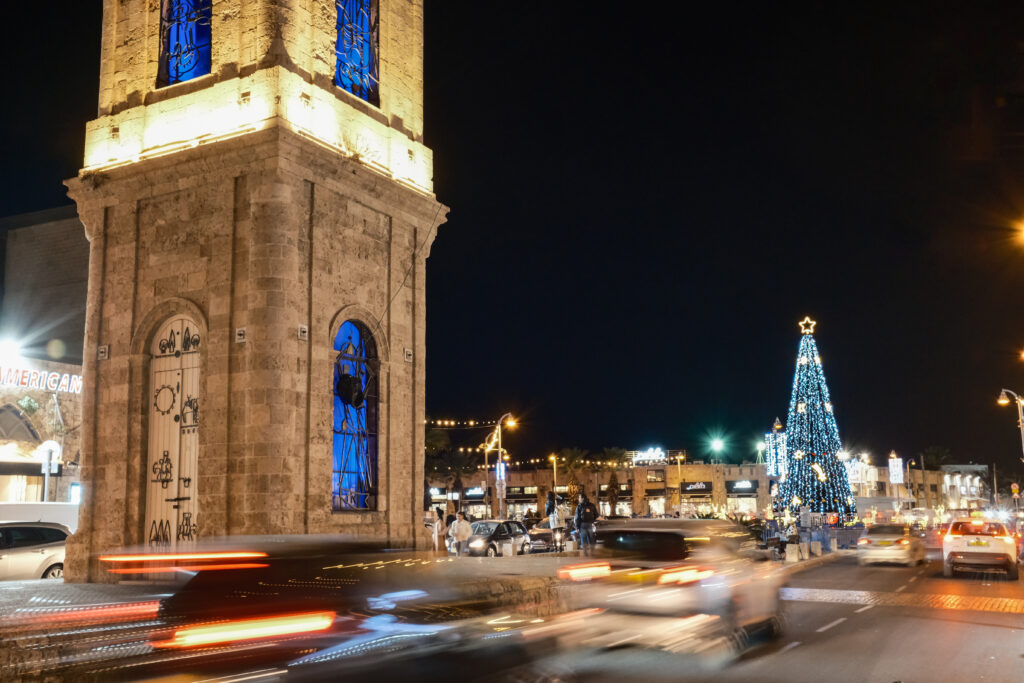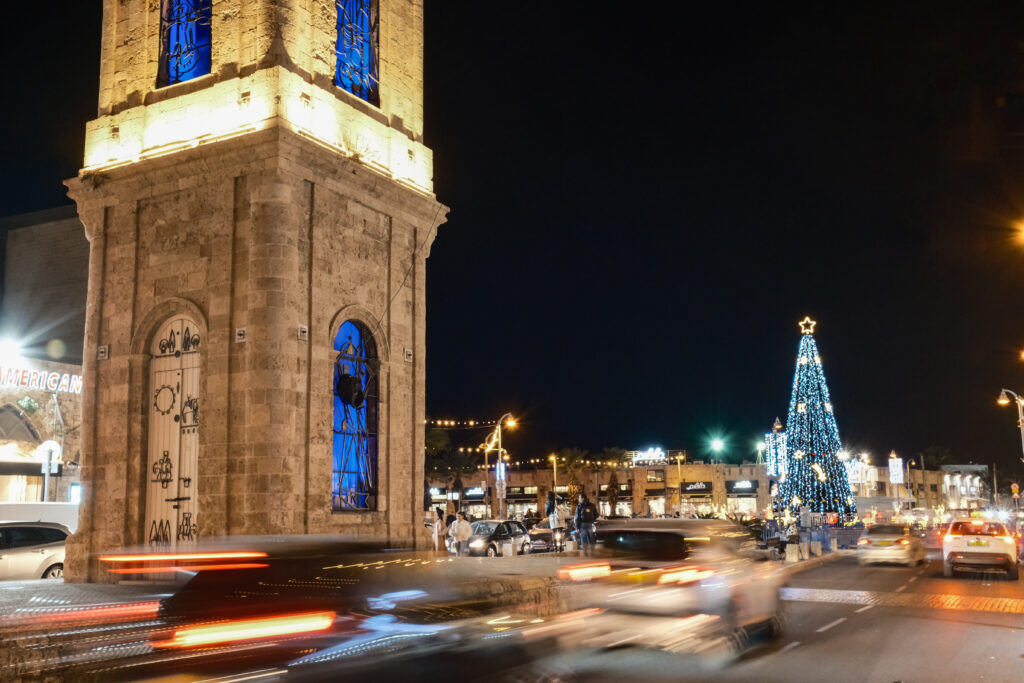
Hanukkah and Christmas Converge: “Common Heritage and Shared Values”
This year will see a rare convergence as Jews light the first candle of Hanukkah at sundown on Wednesday, December 25, which is also the Christian Christmas holiday.
The eight days and nights of Hanukkah begin at sundown on the 25th day of Kislev, the ninth month on the Hebrew calendar, which is the 24th of December this year. While both holidays always occur in the winter, the Hebrew calendar is lunar-sola r. Most of the world uses the solar Gregorian calendar, but the two calendars do not align. As a result, the two holidays rarely occur on the same day. Hanukkah began on Christmas Day only four times since 1900, the last time being in 2005. The two holidays have coincided only 10 times since Christians began using the Gregorian calendar in 1582. The two holidays also happened on the same day in 1959, 1921, and 1910. After this year, the next time the first day of Hanukkah and Christmas overlap will be in 2035.
Since Hanukkah is observed particularly late this year, its eight days will continue until January 2, including December 31, New Year’s Eve.
Hanukkah is a minor holiday without the restrictions associated with the Biblically mandated holy days. It commemorates the recovery of Jerusalem and the subsequent rededication of the Second Temple at the beginning of the Maccabean Revolt against the Seleucid Empire in 139 BCE.
Most Christians celebrate Christmas as the birthday of Jesus, sometime between 4 BCE and 6 BCE in Bethlehem, in the tribal region of Judea in Israel.
While not mentioned in the Bible, Hanukkah is described throughout the Talmud and Mishnah.
In pop culture, these two vastly different holidays are conflated and smashed into a mashup devoid of meaning called Chrismukkah. The mongrelized holiday first arose in German-speaking countries among middle-class Jews of the 19th century. After World War II, Chrismukkah became particularly popular among secular Jews in the United States. The term was popularized in December 2003 by the TV drama The O.C., wherein the character Seth Cohen creates the holiday to signify his upbringing in an interfaith household with a Jewish father and Protestant mother.
Rabbi Tuly Weisz, the head of Israel365, emphasized that the convergence of the two holidays can be an opportunity for Christianity and Judaism to come together.
“When I lived in the United States, the union of the two winter holidays aroused a genuine appreciation for our common heritage and shared values,” Rabbi Weisz wrote. “Now that I live in Israel, however, those tidings of comfort and joy have been overshadowed by a particularly vile ‘War on Christmas and Hanukkah’ that is exceedingly offensive to members of both faiths.”
“Since its inception in 1948, the Jewish State of Israel has gone to great lengths to show proper respect for its Christian citizens and is the one country in the Middle East where Christians are not persecuted. Tourists to Bethlehem, however, experience a frightful encounter in the city where Jesus was born since the Palestinian Authority has controlled the area ever since the Oslo Accords in 1995.”
“Christian visitors to Bethlehem are confronted repeatedly with the false message that Jesus was not a Jew, but a Palestinian Arab. Palestinians and their antisemitic enablers sponsor slick PR gimmicks like “Christ at the Checkpoint” that absurdly claim that Jesus was Palestinian. They insist that if he were alive today, he would be persecuted by Jewish soldiers at Israeli security checkpoints. This perverse form of Cancel Culture goes back to Yassar Arafat, who claimed that Jesus was an Islamic militant! Such revisionist history uproots the very source of Christianity and is completely ridiculous, as even history’s most notorious antisemites acknowledged Jesus’ Jewish identity.”

This perverse propaganda has been incorporated into Christianity as Liberation Theology which Pope Francis has even adopted.
“Despite Palestinian claims to the contrary, Christmas celebrates the birth of a Jew two millennia ago in the Judean town of Bethlehem,” Rabbi Weisz wrote. “Accordingly, the only winter holiday Jesus and his Jewish parents, Mary and Joseph, would have celebrated would have been Hanukkah! The New Testament mentions (John 10:22) that Jesus went to the Temple in Jerusalem to celebrate the Jewish holiday of Hanukkah.”
“Millions of American Christians are overwhelmingly pro-Israel, for they recognize the success of the Jewish State as the fulfillment of biblical prophecy and appreciate the shared Judeo-Christian values that bind America and Israel together. Israel’s powerful story moves many Christians so eager to explore the Jewish roots of their faith, which is why so many Christians are interested in visiting Israel, studying Hebrew, and incorporating Jewish customs into their religious practices. As such, the ancient Jewish lessons of faith and freedom on Hanukkah are particularly relevant to Christians today.”
“When Christmas and Hanukkah share a date, it’s an opportunity for Christians and Jews to celebrate our shared history, our common origins in this region, and the values we both hold dear. And while it is true that there are essential differences between Jews and Christians and our two holidays, what unites us is far more significant than what divides us. And so, when our faith traditions are confronted with the deliberate falsification of history, Christians and Jews must stand together to dispel the darkness by bringing more light and illumination into the world,” Rabbi Weisz concluded.
The post Hanukkah and Christmas Converge: “Common Heritage and Shared Values” appeared first on Israel365 News.
Israel in the News